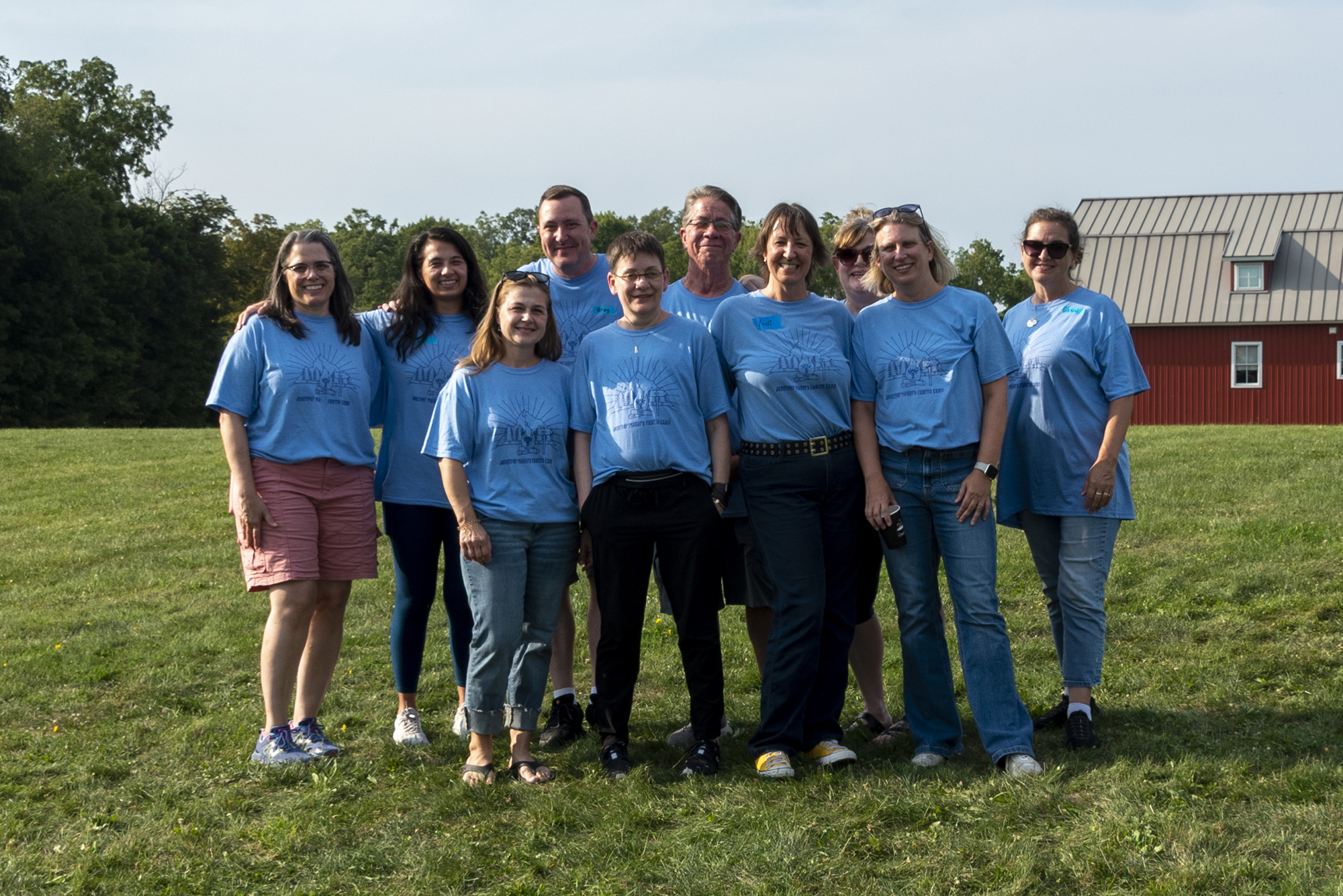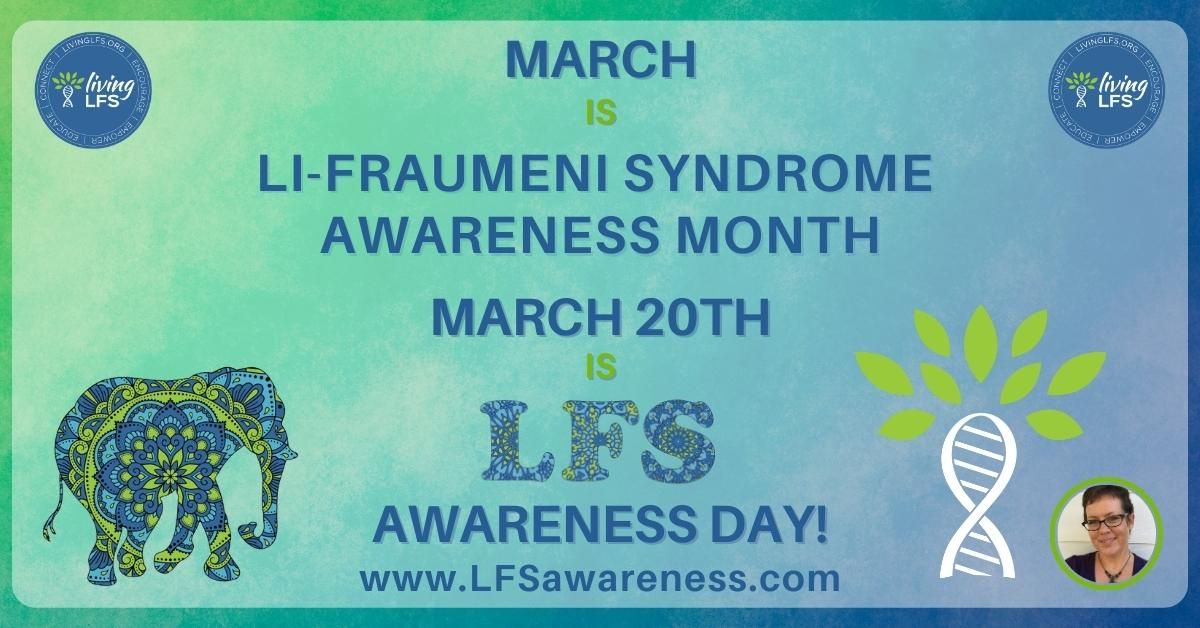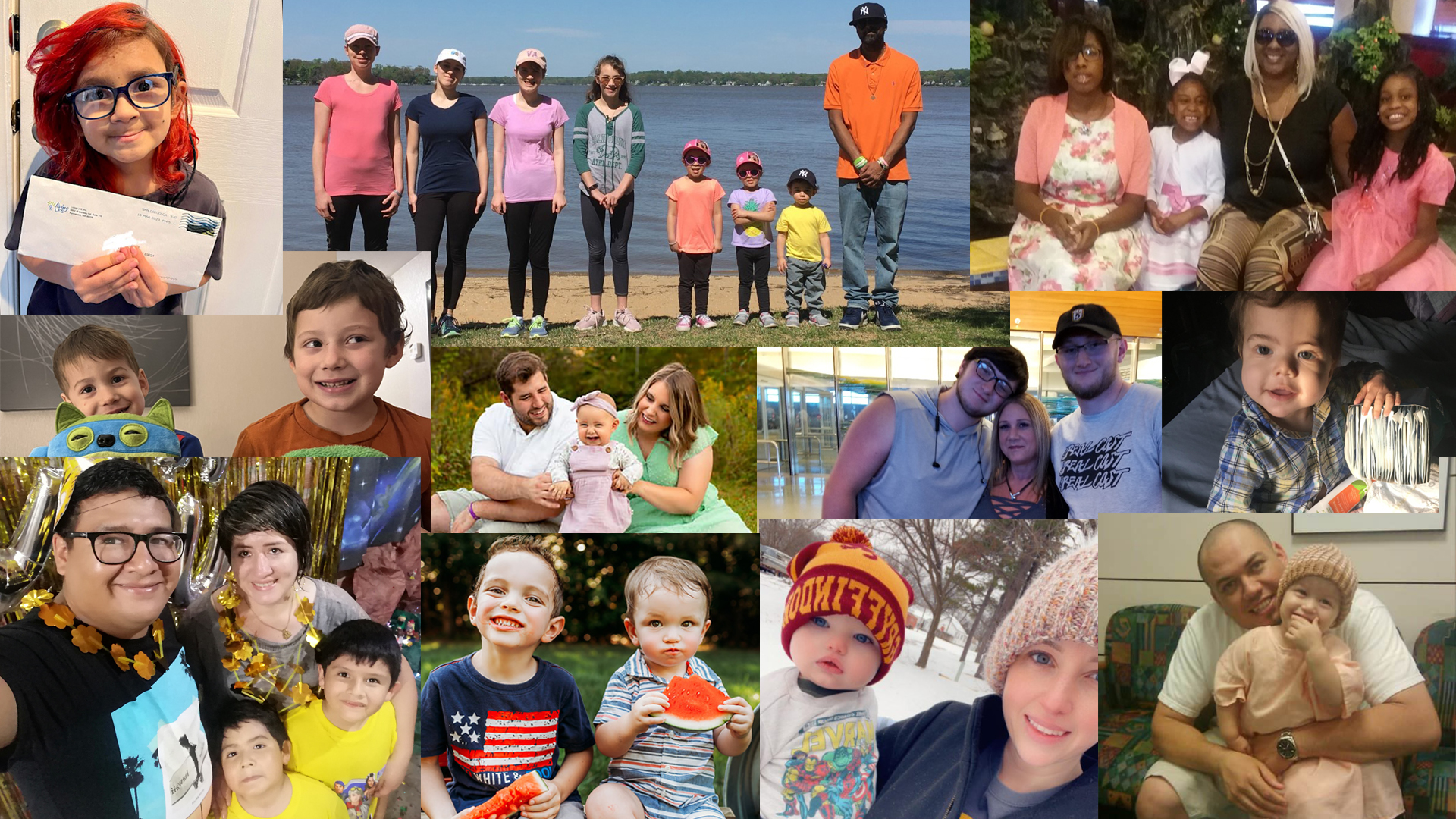The day was warm, which was quite surprising because Bethesda had just gotten 7 inches of snow the day before. My flight out of Greensboro went smoothly, and I found myself sitting on a cold concrete bench waiting for a shuttle to the NIH. The sun beat down on my back as the dripping sounds of melting snow behind me mixed with the noise of taxis and passengers, all hurrying to their destinations. I just sat back and took in the sights. If you told me a year ago that I’d be making this trip, I would have laughed in your face.
How did I get here?
It was almost a year to the day from when I received a call from my geneticist. The good news, "Your test for the BRCA 1 and BRCA 2 test came back negative.” Well, this was very good to hear, because those were the ones I worried about. It was great to dodge that bullet.
However, if this was the good news, what was the problem? The geneticist asked me to get a piece of paper and pen and write down what she was going to tell me. "The panel showed that you have a mutation of the TP53 gene. The condition that you have is called Li-Fraumeni Syndrome, an autosomal dominant gene that caused your breast cancer, more than likely the deadly sarcoma that your dad had, as well as the Adrenocortical Carcinoma that took your brother’s life at the age of 42.”
The year that followed had been filled with confusion, denial, anger and a lot of pity parties. How in the world could this happen? And worse yet was the worry that I might have passed this on to my children. I hated myself for a while, but came to realize that I could no more control the genetic mutation than I could the color of my eyes. This was the lot that I was cast. So what would I do with it? I decided over the last year that if I could do something to help even just one person, I would do it.
I had talked to Dr. Farzana Walcott from the NIH about participating in the LFS Metformin Study, shortly after my meeting with my geneticist. My dilemma was the requirement that you had to be six months out from any surgery in order to enroll. I was planning a prophylactic double mastectomy shortly. The sooner I could get these breasts off, the better that I would feel. I hated them. It didn't ease my anxiety to learn that that the 37 radiation treatments that I had undergone might cause a better than 50% of recurrence of my breast cancer. So, I had to turn down Dr. Walcott’s invitation to participate.
I sort of forgot about the study, and went about my life as normal as I could. To make a long story short, I had to cancel my mastectomy because we thought we were moving and had hit on financial hard times.
Last month, I was on Facebook and saw a "You Might Like This Page" suggestion and it was for Living LFS. I headed to the page and saw that they had a support group. I asked to join. I appreciated the fact that they vetted me, because I know how important privacy is for those of us in this group. So, shortly after making my request and explaining why I wanted to join the group, I was accepted. Wow!! I found a place full of people who knew exactly what I was going through. Where had they been for the last year of my life?
After posting my opening introduction, I soon found a fellow mutant that actually lived within a few miles of me!! I couldn't believe it. Darcey and I met up, and we have such kindred spirits! It's like we'd been friends for years. She empathized with all of my fears and trepidation. Darcey mentioned that both she and her son had done the Metformin Study and told me all about it. She told me how wonderful the people at NIH were, and how she felt that they truly wanted to help us.
That afternoon, I dug through my contacts and found Dr. Walcott's email. I asked her if the study was still open and she replied within a few short minutes. "Yes!" She said they would be so happy to have me. We talked on the phone about the study.
Finally, I found myself saying the words: "I would be happy to participate.” What in the world was I thinking? I'm 51 years old from a very small town. I'd never really been anywhere by myself, let alone flown into Dulles Airport and negotiated shuttles and hotels. I took a breath and told myself, "You can do this... if it can help your children and your children's children... you can do this!!!”
Within a few hours, a member of the Metformin/LFS team, Mabel, helped coordinate my travel. I booked a hotel room on the NIH shuttle route. I sat back and waited the two weeks before I was scheduled to leave.
So, this is how I found myself waiting at the airport for the shuttle to the NIH. I was quite proud of myself for being able to navigate Dulles Airport. Yes, I did have to ask information where they shuttles left out of, but besides that I did it all myself. I had an hour to wait before my shuttle would arrive. I passed the time watching passengers and chatting with some before they would get on a shuttle to their hotel.
With only ten minutes remaining in my wait, a couple in their mid 30s sat down next to me. She was bubbly and energetic, while he was quiet and laid back. We chit chatted until the NIH shuttle pulled up. They got on it too. Curious, I inquired why she was going to the NIH. Kathy explained that she had been diagnosed in 2007 with Adrenocortical Cancer. She was participating in a study with the NIH and that they had kept her alive all these years. She was coming in for routine checks and that she loved the NIH and all the doctors that she dealt with. This was reassuring. She told me they didn't treat you like a number, that they truly cared about her well being and were an essential part of her still being alive.
Before I knew it we were at the NIH. I had to have my bag searched along with going through a metal detector. Kathy advised me to be sure to get a badge when I go through admissions so that I wouldn't have to go through this search every time.
We stopped at a big tan building, #10 of the clinic. What a big and spacious building it was. The expansiveness of the lobby was amazing. The art on the wall was gorgeous. As I looked closer the artwork, I saw that the pictures were images of minute subjects under a magnetron microscope. Wow!! The beauty of the microscopic world is amazing!!!
We asked the young lady at the information desk when the next hotel shuttle would be leaving. With 30 minutes to spare, we all went to the 2nd floor cafeteria before continuing to our hotel. I stayed at the American Inn, so mine was the first stop. Kathy and I exchanged cell numbers and vowed to stay in touch. I love the fact that I met this amazing woman. I know that I found a kindred spirit that I will keep in touch with. She truly inspired me to see the best in all things.
NIH Day One
I had to be up early. No caffeine or food after midnight... ugh a morning without coffee is not my favorite way to start the day. I went straight to admissions where I was checked in, given a bracelet and lots and lots of paperwork, although this is not surprising. Next, I went to phlebotomy for my first blood draw. It was no big deal, these phlebotomist are professionals. I didn't even feel the stick.
Next, I went up to the 13th floor where I finally got a chance to meet Christine, the main nurse with the study. She's vibrant and sweet and made me feel at home. We proceeded to go over my family history and medical history. After that I finally got to meet Dr. Walcott. What an amazing woman. She is very down to earth and very caring. Both she and Christine kept thanking me for participating in the study. I can't tell you how good this made me feel.
For the whole last year, no one really understood what I was going through. Sometimes, I felt like people thought I was making a mountain out of a mole hill. These professional people were taking my concerns seriously.
Dr. Walcott explained what the study was about. This study is to determine if people who have LFS can take Metformin with minimal side effects. Further, they also wanted to determine if they could detect changes in the LFS patient's normal blood hormones, muscles, or breath that may indicate that Metformin is having an effect on the patient's body. This study may help provide the critical foundation for future trials of Metformin in this population. They hope to learn if taking Metformin might prevent cancer in LFS patients.
We did a breath test and then I was asked to drink some glucose and then go back to Phlebotomy and have my second blood draw.Back upstairs after the blood draw, I was given a physical examination by Dr. Walcott. Soon after, I was introduced to Dr. Paul Hwang, who is a very caring and understanding doctor. He was cautiously optimistic about the findings of his study so far. His study involves the metabolic regulation by Tumor Suppressor p53 in Li-Fraumeni patients. They believe that the gene that is altered in the LFS patient, not only controls cancer susceptibility but also global metabolism. The information gained from the results of the various test will be critical to examining this novel role in human subjects and ultimately might help them better understand why cancers develop from a metabolic perspective.
Dr. Hwang, along with Kevin, a nurse, explained and administered a treadmill test. This test wasn't that hard. You are asked to walk fast on a treadmill while wearing a mask. You can freely breathe in the mask.
When I was done, it was so cold outside, I didn't want to do anything short of get back to my hotel and relax. The day was long, but well worth the effort.
NIH Day Two
The next day I only had the MRI study. You don't go all the way in the MRI machine, so I didn’t have any claustrophobia issues. They want to study the mitochondria of the tibias anterior muscle (the one in front of your shin). They hooked me up to this foot contraption that had a weight on it. They strapped a coil to my muscle. They put my legs in the MRI machine and asked me to stay at rest for two minutes, then for two minutes, lift the weight to a the rhythm of the MRI machine. I rested for 25 minutes and then did it all again. That's all there was to it.
Each and every person I met at the NIH treated me with the utmost respect. Each thanked me more than once for taking time out of my busy schedule to do the studies. I feel like I've made some lifelong friends in the process.
As I sat in my taxi heading back to the airport, I realized that in a very small way, I just participated in something far bigger than myself. I felt a sense of accomplishment and for the first time in a year, I felt some form of hope. Hope, that someday as Dr. Hwang put it, "That we can treat LFS as a chronic disease just like HIV." Hope, that maybe someday, with the help of these studies at the NIH, we mutants might be able to not have to dread the next biopsy or diagnosis. Hope that we can someday live a relatively normal life.
And, if by me taking a few days out of my life to make life more normal for future generations, I am glad to do it. Maybe, with what is learned from these studies, the next generation won't have to deal with the trepidation of LFS as we do right now. Maybe just maybe, there's hope...
For more information on the LFS Metformin Study:
Contact: Farzana L. Walcott MD, MPH
Lead Associate Investigator
farzana.walcott@nih.gov
office: 240-276-7661
Metformin and Li-Fraumeni Syndrome


